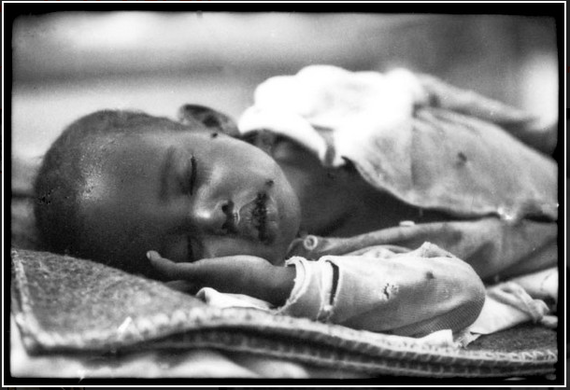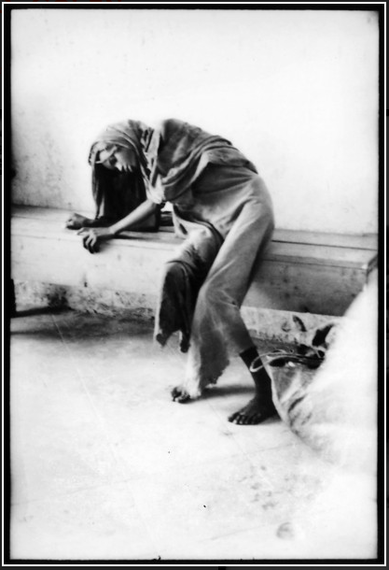As I think about my work this past year in Liberia and Haiti, I am reminded of these thoughts I included in a Reporter's Notebook that I wrote for Newsday after returning from having covered the famine in Somalia in 1993. It strikes me that what I wrote then is always applicable to reporting in the developing world. And that though we are convinced our work will help the "other," we are always walking a tightrope between doing good and doing right -- and those are not always the same thing.
--
"Is it alright if I take photographs?" I ask the clinic director.
"Of course," she says, automatically. "They understand. Take anything you want."
So, safely removed from the misery and separated from my own humanity by the camera's optics, I begin recording the haunting sights around me: The woman too weak to sit up; the man so skeletal it's hard to believe he is alive; the infant strapped to his mother's back who has a hole in his cheek through which flies crawl.
What I am doing constitutes an appalling invasion of privacy. I cannot communicate with my subjects, for I do not speak their language and they do not speak mine. I cannot ask permission to capture their living death. They are victims of war, victims of starvation, victims of ancient clan hatreds. Are they also the victims of my '"right to know" -- and yours? Am I capturing their humanity, or am I robbing them of it, turning them into objects, to be briefly pitied and then eternally forgotten?
And if, as the clinic staff tells me, these people do not mind being photographed., why is it that a few weeks later, when I am attempting to photograph Somalis in a situation where they are healthier and less dependent on the foreigners "helping" them, the women either turn their heads and hide their faces, or angrily yell at me and wave me away?

